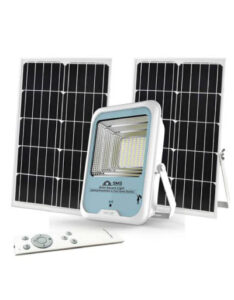🚚 The Problem: Energy Gaps Break the Cold Chain
In rural and off-grid areas, maintaining consistent refrigeration for agricultural produce, vaccines, and medical supplies is extremely difficult due to:
-
- Erratic or nonexistent grid electricity
-
- High diesel fuel costs for generators
-
- Lack of infrastructure to monitor temperature stability
-
- Spoilage of perishable goods and critical medical losses
This challenge affects:
-
- Farmers, who lose up to 30–50% of perishable produce post-harvest.
-
- Health centers, where vaccines and blood products become ineffective without cold storage.
-
- Small businesses like fishmongers, dairy vendors, and food processors.
⚠️ Example: A mango farmer in northern Nigeria may lose half their harvest before reaching market due to lack of refrigeration. A rural clinic may dispose of expired vaccines after a 2-day blackout.
🌞 The Solution: Solar-Powered Cold Chains
Solar cold chains use solar panels and battery storage (or ice storage) to power:
-
- Refrigerators and freezers
-
- Cold rooms or walk-in chillers
-
- Mobile cold boxes for last-mile delivery
-
- Temperature monitoring and control systems
These systems ensure that temperature-sensitive goods remain cold from source to end-user, even without access to consistent grid power.
📊 Benefits of Solar Cold Chains
-
- ✅ Zero fuel costs after setup
-
- ✅ Low maintenance compared to diesel generators
-
- ✅ Independence from grid failures
-
- ✅ Increased income for farmers and food vendors
-
- ✅ Improved vaccine efficacy and health outcomes
💡 Stat: According to WHO, 25% of vaccines globally are wasted due to cold chain failures — many of which could be prevented with solar solutions.
🎯 Jeho Ashar Energy’s Advantage: Powering Preservation
✅ 1. Sector-Focused Cold Chain Packages
Jeho Ashar can create targeted solar refrigeration kits for specific use cases:
-
- Agri-Solar Cold Rooms – For cooperative storage of tomatoes, yams, milk, fish, etc.
-
- Health-Center Solar Fridges – WHO-certified systems for vaccine preservation.
-
- Mobile Cold Boxes – Solar-charged mobile fridges for delivery trucks and motorbikes.
-
- Rural Market Cold Kiosks – Vendor stalls with solar-powered mini-fridges.
📦 Custom Fit: Packages can be scaled to the client’s volume and location.
✅ 2. Smart Temperature Monitoring Systems
Jeho Ashar can equip cold chain installations with:
-
- IoT-based temperature logging and alert systems
-
- Remote dashboards for monitoring storage conditions
-
- SMS/email alerts when temperatures rise outside the safe zone
📲 Trust Factor: This is key for NGOs, hospitals, and export buyers who demand traceability and compliance.
✅ 3. Pay-as-You-Go and Microfinance Models
For farmers, vendors, and clinics with low upfront capital, Jeho Ashar can:
-
- Partner with microfinance banks and agricultural co-ops
-
- Use mobile payment models for daily/weekly installments
-
- Offer cold storage as a service in cluster communities
💰 Access + Scale: Helps penetrate underserved markets and grow user base sustainably.
✅ 4. Local Assembly and Technical Support
Jeho Ashar can source components locally where possible and:
-
- Train local technicians for quick repair and maintenance
-
- Establish service hubs near agricultural zones and health districts
-
- Provide user education on cold chain best practices
🛠 Impact: Strengthens rural technical capacity and trust in the systems.
📈 Strategic Opportunities for Jeho Ashar Energy
-
- Partner with agriculture & health NGOs: Provide solar cold chains as part of food security and health initiatives.
-
- Pitch to government programs: Support vaccine storage for immunization campaigns.
-
- Develop exportable models: Standardize solutions for other ECOWAS countries facing similar challenges.
-
- Support women-led agro-enterprises: Offer cold chain access for fishmongers, dairy processors, and food vendors.
📌 Final Thought
In the fight against post-harvest loss and vaccine spoilage, solar-powered cold chains are life-changing infrastructure. With the right technology, finance model, and local insight, Jeho Ashar Energy can lead the transformation of rural food and health systems—ensuring that what is grown and produced reaches the market or patient safely, reliably, and profitably.




